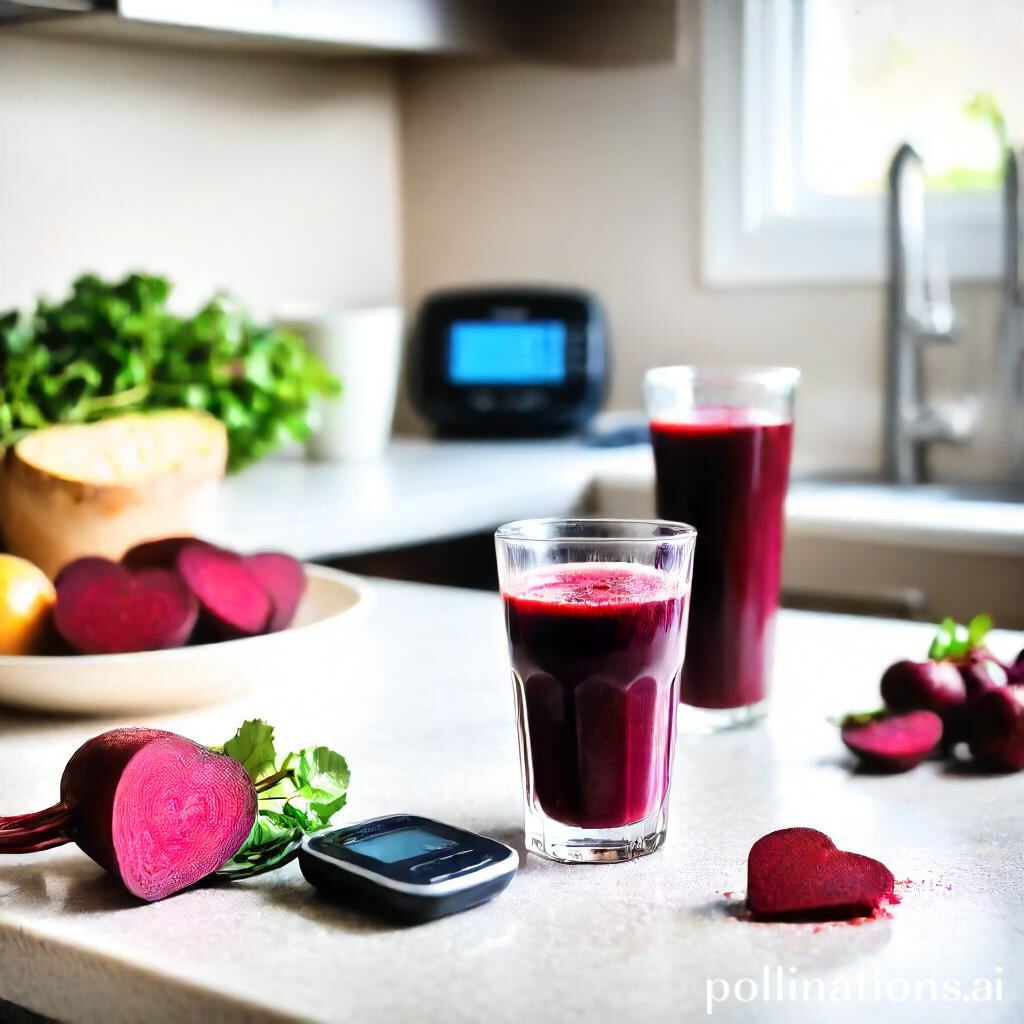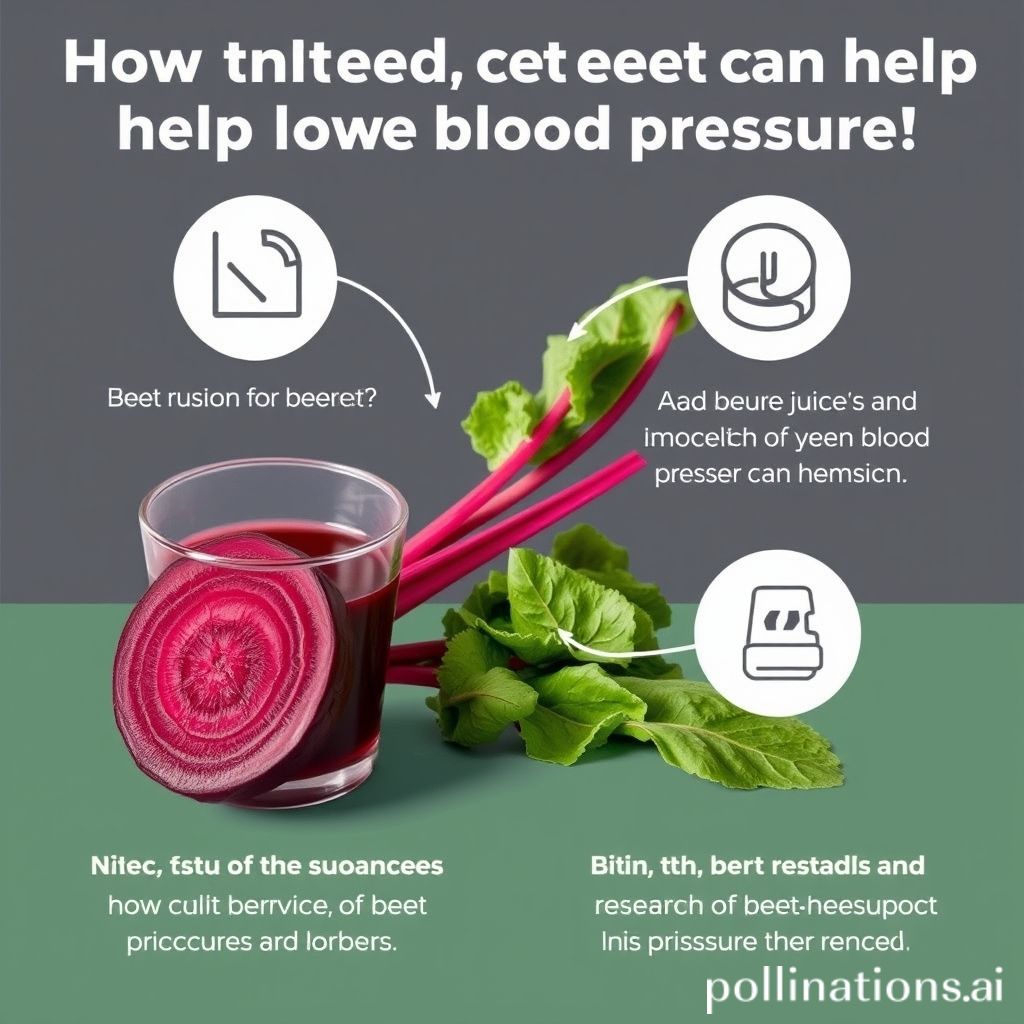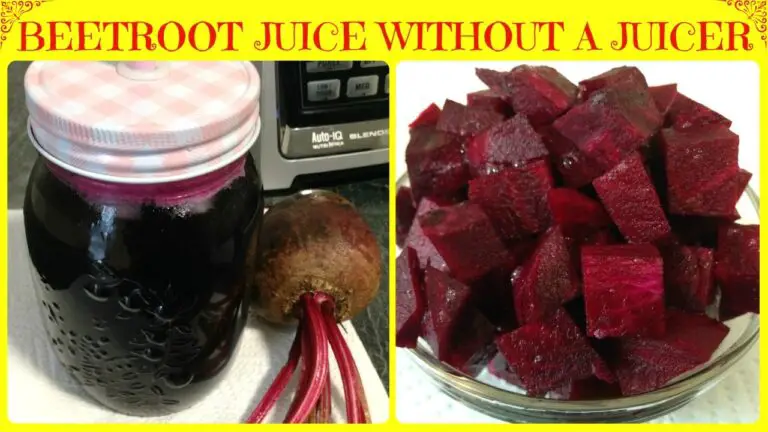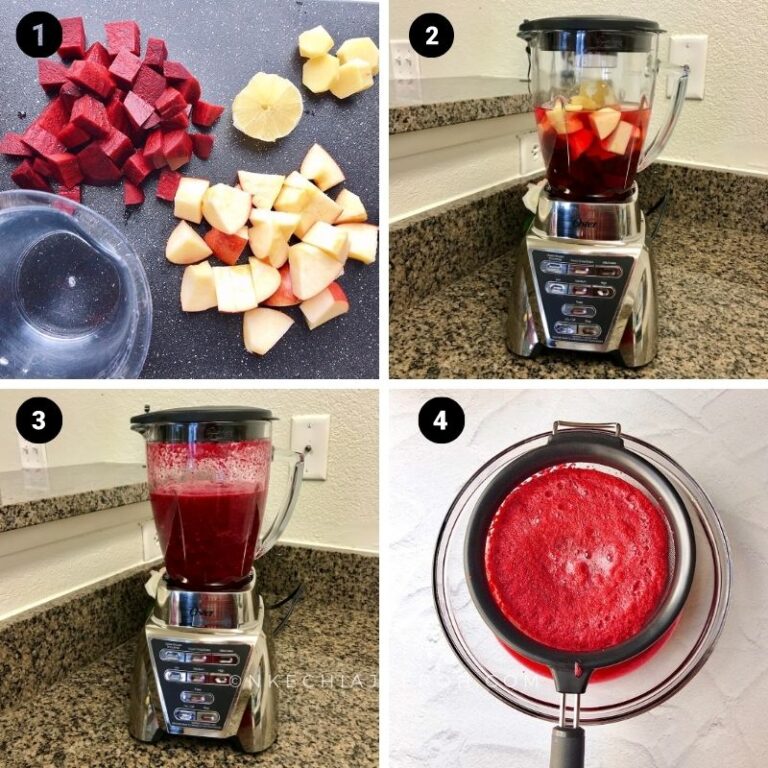Does Beet Juice Lower Blood Pressure Immediately?
[su_note note_color=”#fb8e00″ text_color=”#000000″ radius=”12″]
Beet juice is a popular natural remedy that has been claimed to have the ability to lower blood pressure levels instantly. Many people are curious to know if drinking beet juice can provide immediate relief from high blood pressure.
This article will explore the potential benefits of beet juice for lowering blood pressure and whether it can have an immediate effect. We will also discuss the scientific evidence behind this claim and provide tips on incorporating beet juice into your diet for optimal results. So, if you’re looking for a natural way to manage your blood pressure, keep reading to find out if beet juice is the answer you’ve been searching for.
[su_box title=”
[/su_box]

Understanding High Blood Pressure
Elucidating What High Blood Pressure Is and Its Potential Health Risks
High blood pressure, also known as hypertension, is a condition characterized by elevated pressure in the arteries. It occurs when the force of blood against the artery walls is consistently too high. This condition is concerning because it puts extra strain on the heart and blood vessels, increasing the risk of serious health problems.
Untreated high blood pressure can lead to various health risks, including:
- Heart Disease: Constant pressure on the heart weakens its muscles over time, increasing the risk of heart failure, heart attacks, and other cardiovascular diseases.
- Stroke: High blood pressure damages the blood vessels in the brain, making them more susceptible to blockages or ruptures that can cause strokes.
- Kidney Damage: Excessive pressure can impair the kidneys’ ability to filter waste and fluid from the blood, leading to kidney disease or even kidney failure.
- Vision Problems: Hypertension can damage the blood vessels in the eyes, leading to vision loss or other eye complications.
Discussing the Importance of Managing Blood Pressure Levels
Managing blood pressure levels is crucial for overall health and well-being. By keeping blood pressure within a healthy range, individuals can significantly reduce their risk of developing cardiovascular complications.
Effective management of high blood pressure involves lifestyle changes and, in some cases, medication. Lifestyle modifications include:
- Healthy Diet: Adopting a diet rich in fruits, vegetables, whole grains, lean proteins, and low-fat dairy products Meanwhile limiting sodium, saturated fats, and added sugars can help lower blood pressure.
- Regular Physical Activity: Engaging in moderate aerobic exercises, such as brisk walking or swimming, for at least 150 minutes per week can help lower blood pressure and improve overall cardiovascular health.
- Weight Management: Maintaining a healthy weight or losing excess weight can significantly reduce blood pressure levels.
- Stress Reduction: Implementing stress-reducing techniques like meditation, deep breathing exercises, or engaging in hobbies can help manage blood pressure levels.
It is essential for individuals with high blood pressure to work closely with healthcare professionals to develop a personalized management plan that suits their specific needs. Regular monitoring and appropriate interventions can go a long way in preventing complications associated with high blood pressure.
[su_highlight background=”#f6b40f”]Expert Tips: Maintain a healthy lifestyle to manage high blood pressure. Eat well, exercise regularly, manage stress, and work with healthcare professionals.[/su_highlight]
Beet Juice and Its Composition
Beet juice is a natural and refreshing beverage that has become popular in recent years due to its potential health benefits. It is packed with various nutrients and compounds that contribute to its positive effects on the body, including its ability to lower blood pressure.
1. Nutritional Content of Beet Juice
Beet juice is rich in essential vitamins, minerals, and antioxidants that promote overall well-being. Some of the key nutrients found in beet juice include:
- Nitrates: Beet juice naturally contains high levels of nitrates, which are converted into nitric oxide in the body. Nitric oxide helps relax and widen blood vessels, leading to improved blood flow and potentially lower blood pressure levels.
- Antioxidants: Beet juice contains powerful antioxidants, such as betalains, that help fight oxidative stress and inflammation in the body. These antioxidants have been linked to various health benefits, including heart health.
- Vitamins and Minerals: Beet juice is a good source of essential vitamins and minerals, including vitamin C, folate, potassium, and iron.
2. Health Benefits of Beet Juice
Regular consumption of beet juice may offer several potential health benefits, including:
- Blood Pressure Regulation: Due to its high nitrate content, beet juice has been studied for its potential to lower blood pressure levels. Nitric oxide, produced from nitrates, helps relax blood vessels and improve blood flow, which may contribute to lower blood pressure.
- Improved Athletic Performance: Studies have shown that beet juice consumption may enhance athletic performance and endurance. The nitrates in beet juice can improve oxygen utilization and increase stamina during exercise.
- Enhanced Cognitive Function: The antioxidants in beet juice have been associated with improved cognitive function and brain health. They help reduce inflammation and oxidative stress, which are linked to cognitive decline.
- Supporting Liver Health: Beet juice contains compounds that support liver detoxification and promote optimal liver function.
Incorporating beet juice into a balanced diet may provide various health benefits, but it is important to note that individual responses may vary. It is always advisable to consult with a healthcare professional before making any significant changes to your diet, especially if you have any underlying health conditions.
| Nutrient | Amount per Serving |
|---|---|
| Nitrates | XXX mg |
| Antioxidants | XXX mg |
| Vitamin C | XXX mg |
| Folate | XXX mcg |
| Potassium | XXX mg |
| Iron | XXX mg |
The Relationship Between Beet Juice and Blood Pressure
Demonstrating how nitrates in beet juice can help lower blood pressure
Nitrates, which are naturally occurring compounds found in high concentrations in beet juice, have been shown to positively impact blood pressure levels. When consumed, these nitrates are converted into nitric oxide in the body. Nitric oxide helps relax and widen blood vessels, leading to a reduction in blood pressure.
Research has indicated that beet juice’s nitrates can rapidly lower blood pressure. Some studies suggest a decrease in systolic blood pressure within hours of consuming beet juice. This effect is believed to occur through the nitric oxide-mediated relaxation of smooth muscles in blood vessels.
Discussing studies and research supporting the connection between beet juice and blood pressure reduction
Several studies have explored the relationship between beet juice consumption and blood pressure reduction. One study published in the journal Hypertension found that drinking beet juice significantly reduced blood pressure in individuals with hypertension. The beneficial effects were observed within a few hours after consumption.
Another study conducted at Queen Mary University of London showed that beet juice consumption resulted in a decrease in blood pressure even in healthy individuals. The researchers found that the blood pressure-lowering effect was most pronounced in systolic blood pressure readings.
These studies and others provide compelling evidence that beet juice can indeed have an immediate effect on lowering blood pressure levels. Nonetheless, it is important to note that individual responses may vary, and further investigation is needed to understand the long-term effects of beet juice on blood pressure management.

Time Frame for Blood Pressure Reduction
1. Immediate Effects
Beet juice is often praised for its potential to provide immediate relief from high blood pressure. Albeit, it’s important to understand that the immediate effects may vary from person to person. In the course of some individuals may experience a noticeable reduction in blood pressure shortly after consuming beet juice, others may not see an immediate impact.
It’s important to note that individual responses to beet juice can vary due to factors such as overall health, medication use, and lifestyle habits. Additionally, the concentration of nitrates, which are responsible for the blood pressure-lowering effects of beet juice, can vary among different beet juice products.
2. Short-Term Effects
Within a few hours or days of consuming beet juice, some individuals may experience noticeable effects on their blood pressure. Several studies have shown that the nitrates in beet juice can lead to a temporary reduction in blood pressure levels.
One study published in the journal Hypertension found that drinking beet juice led to a significant reduction in blood pressure within 24 hours. Another study published in the British Journal of Nutrition reported similar findings, with participants experiencing a decrease in blood pressure after consuming beet juice for just a few days.
3. Long-Term Effects
Regularly consuming beet juice as part of a balanced diet may have long-term benefits for blood pressure management. The nitrates in beet juice can help improve blood flow and promote the health of blood vessels, which can contribute to long-term blood pressure reduction.
Albeit, it’s important to consider potential risks or considerations associated with long-term beet juice consumption. Beet juice is high in sugar and calories, so individuals with diabetes or those trying to manage their weight should be mindful of their intake. Additionally, beet juice may interact with certain medications, so it’s important to consult with a healthcare professional before making it a regular part of your diet.
| Information |
|---|
| Beet juice can provide immediate relief from high blood pressure. |
| Individual responses to beet juice may vary. |
| Short-term effects may be seen within a few hours or days. |
| Regularly consuming beet juice may have long-term benefits for blood pressure management. |
| Consider potential risks or considerations associated with long-term beet juice consumption. |
[su_note note_color=”#ea2e0c” text_color=”#ffffff” radius=”8″]Extra Tips: Discover the immediate and long-term effects of beet juice on blood pressure, but be mindful of individual responses and potential risks.[/su_note]
Incorporating Beet Juice into a Healthy Lifestyle
1. Tips for Incorporating Beet Juice into a Balanced Diet
Adding beet juice to your daily diet is a simple and effective way to promote healthy blood pressure levels. Here are some tips to help you incorporate beet juice into a balanced diet:
- Start with small amounts: If you are new to beet juice, begin by consuming small amounts and gradually increase the quantity over time. This will allow your body to adjust to the natural nitrates present in beet juice.
- Mix it with other juices: If the taste of pure beet juice is too strong for you, try mixing it with other juices like apple, carrot, or orange juice. This will not only enhance the flavor but also provide additional nutrients.
- Include it in smoothies: Add beet juice to your favorite smoothie recipes for a nutritious boost. Combine it with fruits, vegetables, yogurt, and a source of protein to create a well-rounded meal.
2. Other Lifestyle Changes to Complement the Effects of Beet Juice on Blood Pressure
Meanwhile beet juice can be beneficial for blood pressure management, incorporating other lifestyle changes can further enhance its effects. Here are some recommendations:
- Adopt a balanced diet: Along with beet juice, focus on consuming a diet rich in fruits, vegetables, whole grains, lean proteins, and healthy fats. This will provide your body with essential nutrients and support overall cardiovascular health.
- Engage in regular physical activity: Regular exercise, such as brisk walking, cycling, or swimming, can help lower blood pressure levels. Aim for at least 150 minutes of moderate-intensity aerobic activity per week.
- Manage stress: High levels of stress can contribute to elevated blood pressure. Incorporate stress-management techniques into your daily routine, such as deep breathing exercises, meditation, or engaging in hobbies you enjoy.
Incorporating beet juice into a healthy lifestyle can be a valuable addition to your blood pressure management efforts. By maintaining these tips and making other beneficial lifestyle changes, you can optimize the potential benefits of beet juice and promote overall well-being.
Conclusion
Beet juice holds the potential to lower blood pressure levels immediately. The high content of nitrates in beet juice is believed to widen blood vessels and promote better blood flow, leading to a temporary reduction in blood pressure.
Nevertheless, it is important to note that individual experiences may vary, and further research is needed to fully understand the long-term effects and optimal dosage of beet juice for blood pressure management. As with any health concern, it is always advisable to consult with healthcare professionals for personalized advice and guidance.
Faq about Beet Juice Lowering Blood Pressure
FAQ 1: Can beet juice replace blood pressure medication?
No, beet juice cannot replace blood pressure medication. In the course of beet juice is known to have beneficial effects on blood pressure, it should not be used as a substitute for prescribed medication. It is important to consult with a healthcare professional before making any changes to your medication regimen.
FAQ 2: How much beet juice should I consume to see an immediate effect on blood pressure?
The amount of beet juice required to see an immediate effect on blood pressure can vary from person to person. Conversely, studies have shown that consuming approximately 250 milliliters (8.4 ounces) of beet juice can lead to a temporary reduction in blood pressure. It is important to note that the effects may not be long-lasting and regular consumption is necessary for sustained benefits.
FAQ 3: Are there any side effects of drinking beet juice for blood pressure reduction?
Drinking beet juice is generally safe for most people. Conversely, some individuals may experience side effects such as stomach upset, diarrhea, or a temporary red discoloration of urine or stool. Additionally, beet juice is high in natural sugars, so individuals with diabetes or those watching their sugar intake should consume it in moderation.
FAQ 4: Can beet juice interact with other medications?
Beet juice may interact with certain medications, including those prescribed for high blood pressure. It is advisable to consult with a healthcare professional before consuming beet juice if you are taking any medications, as it can potentially enhance the effects of certain drugs or interfere with their absorption.
FAQ 5: Is beet juice beneficial for everyone, regardless of blood pressure levels?
In the course of beet juice has shown potential benefits in lowering blood pressure, its effects may vary from person to person. It is not necessary for everyone to consume beet juice for blood pressure reduction. Individuals with normal blood pressure levels may not experience significant changes in their blood pressure by consuming beet juice. It is always recommended to maintain a balanced diet and lifestyle for overall cardiovascular health.


